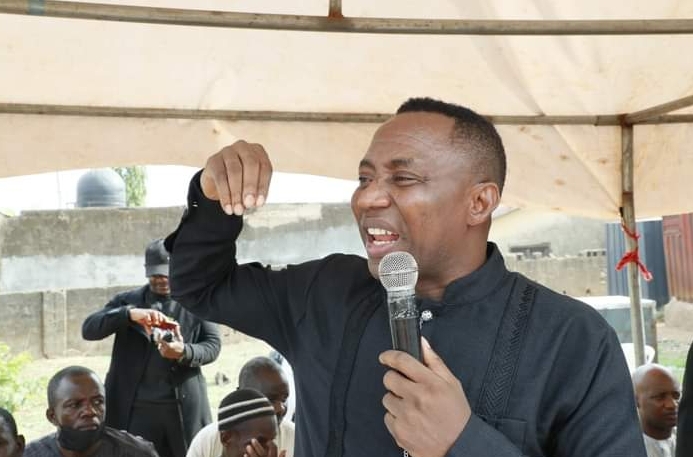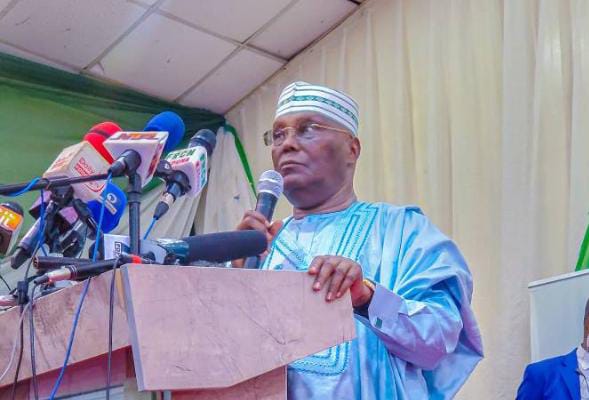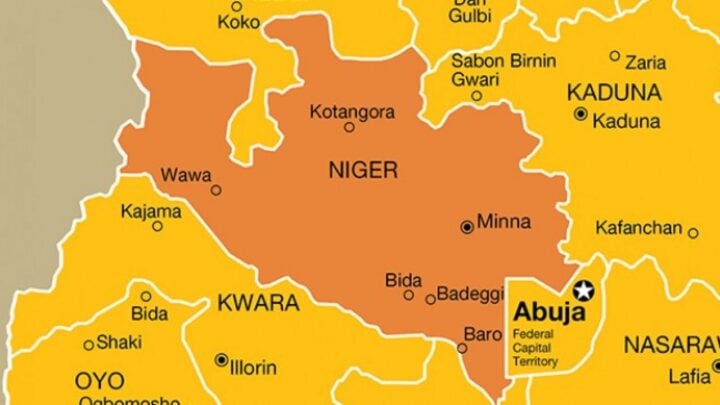A dilapidated road caused by erosion at Isale Jagun Community
BY ABDULGANIYU ABDULRAHMAN AKANBI
In the bone-chilling weather of an August morning in his community in Ilorin West LGA, Kwara state, Salihu Alabi Olojoku, a man in his mid-forties, nervously stood among his peers. Wearing a wrinkled face, he narrated how erosion had displaced him from his home.
“This land belongs to my father. I built this house on it, after years of hard labour,” Olojoku began.
“But now, the erosion has done much harm to the house. It has deepened the gutter to my door. We are not able to enter through the door again.”
Advertisement
The erosion in the area continues to threaten the existence of Olojoku’s house and many other buildings. The gully is creeping closer to residential apartments. The erosion now passes under a culvert to Kuntu/Isale-Jagun/Gaa Aremu’s road to connect with several communities like Isale Jagun/Kuntu, Abata-Suban and Itakudimoh communities. When it rains in these communities, houses, farmlands, schools and roads are overwhelmed with water, with residents having to stay indoors throughout.
Just recently, Kwara state was listed among the highly probable flood risk states in 2022 by the Nigeria Hydrological Services Agency (NIHSA) in its 2022 annual flood outlook (AFO).
RUNNING FOR SAFETY
Advertisement
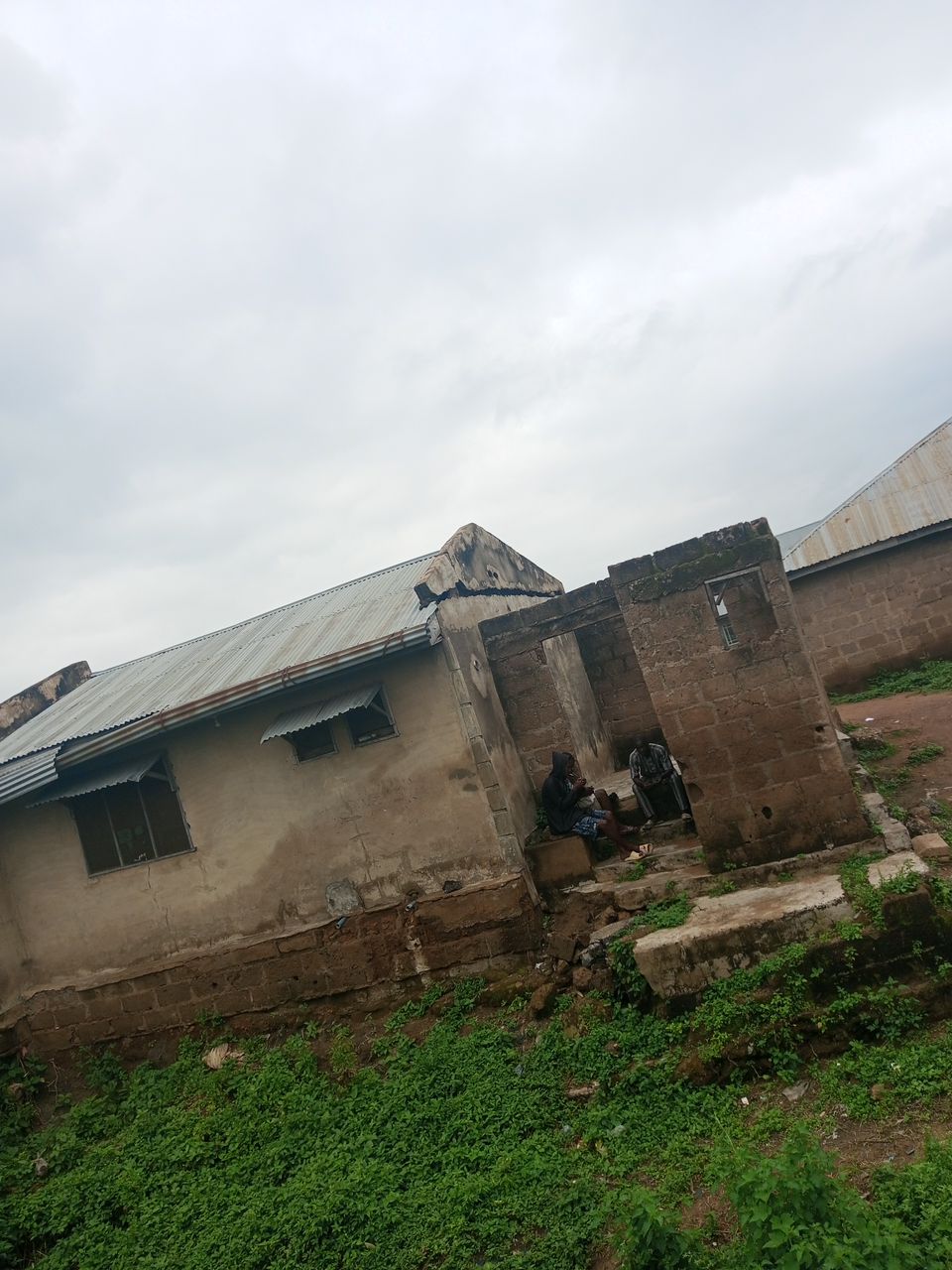
When Olojoku moved into his house in 2013, he never thought that erosion would kick him out five years later.
“I left the house to save my life. The flood was already consuming the land and then moving to the building. If it rains at night, the flood might wash away the whole building and we might be helpless. So, to avert such occurrence, I moved out, ” he said.
Speaking on the efforts made before finally leaving the house, Olojoku said aside from spending a lot of money to get things fixed, he had sought help from individuals whom he believed were close to Abdulrahman Abdulrazaq, governor of the state, who also hails from the LGA.
“I’ve used sand and rocks to fill the entrance of my house. We’ve met with the people who are working with the government in the community. They promised to help us at different intervals. Yet, we got no help,” he said.
Advertisement
Olojoku said he had also spent resources to construct a makeshift bridge so he and other members of the community could use it; but again, the erosion took this bridge out.
As it is now, Olojoku who owned a house is now back to renting one to keep his family. He is sad that his house has now turned into a corridor for “area boys to smoke weed”.
“THERE IS NO PEACE WHEN IT RAINS”
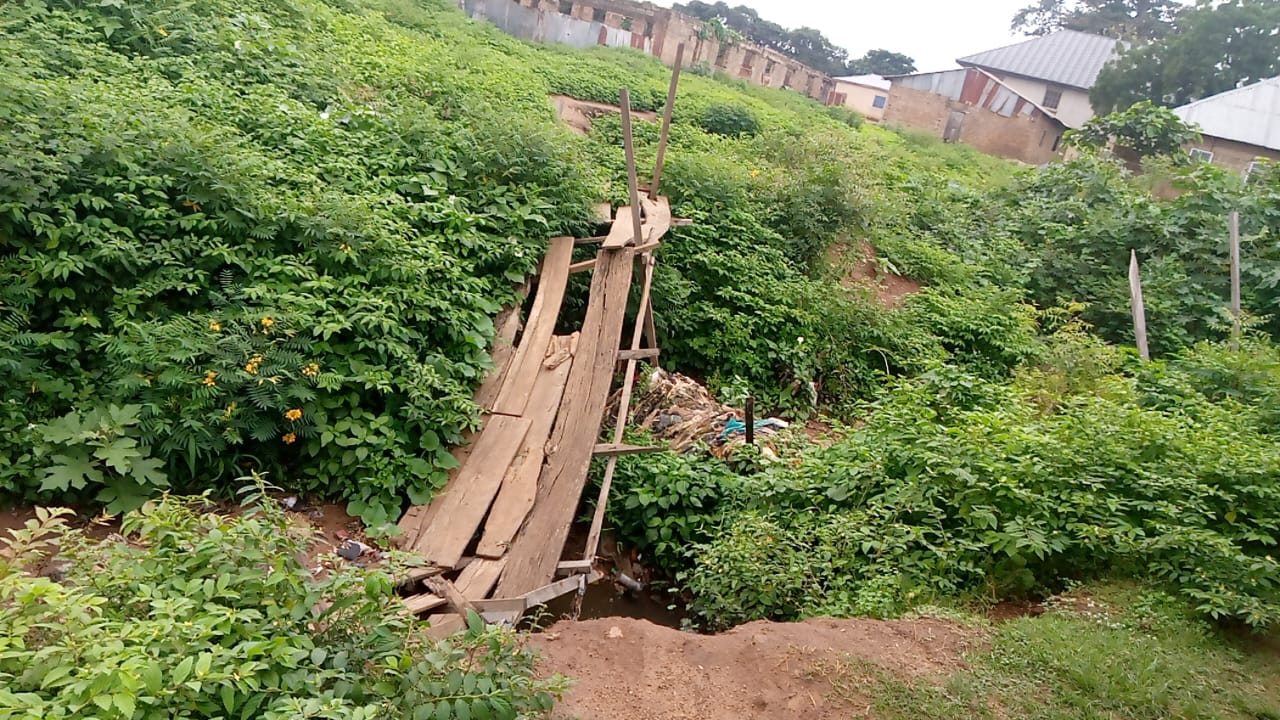
The Abata-Suban area of Ita-Kudimoh in Ilorin West is another community where erosion has displaced many residents, while several buildings and properties were also affected.
Advertisement
Idowu Maijidadi, a 32-year-old local weaver of aso-ofi (a traditional clothing material), while narrating his experience said it is an age-long problem and there is no peace of mind in the community during the rainy season.
Maijidadi has lost count of his weaving equipment washed away by the recurring flood.
Advertisement
“We’ve been facing this problem for more than 15 years without any help. Our minds are not always at rest during the rainy season,” he said.
Whenever the sky turns dark and it is about to rain, Maijidadi said everybody gets into panic mode.
Advertisement
“Whenever it rains, we can’t stay here. We will starting leaving to save our lives and some properties,” he added.
Hundreds of residents are now leaving the area, and no one seems interested in renting an apartment there.
Advertisement
A few residents tried to build fences and made concrete walls around their buildings, but the erosion won’t let the structures stand.
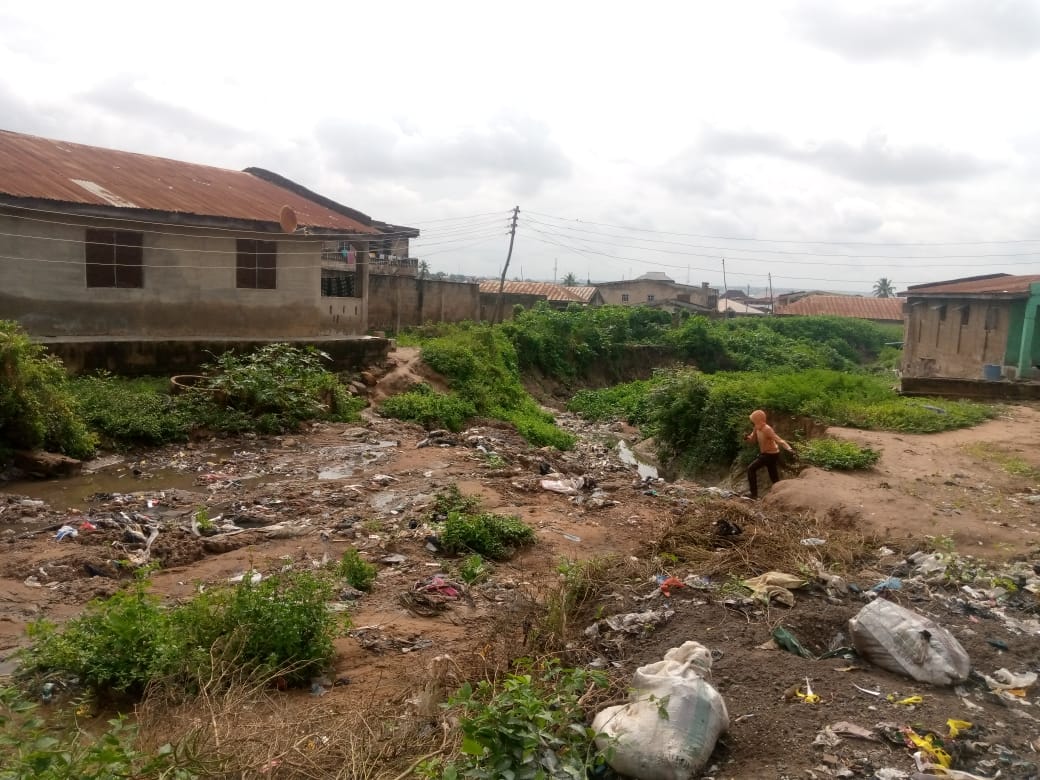
Mutiu Arikewuyo, a civil servant in Ita-Kudimoh community, provided a historical background to the challenge the people are facing. He said the erosion started about two decades ago during the time of late Muhammad Lawal, a former governor of the state.
Lawal was said to have constructed roads and drainages across the state, and channeled the flow of water to Ita-Kudimoh community.
“He built the gutter but it was not large enough. Later, after the roads were expanded, the culverts were also expanded alongside and that made the amount of water flowing through the channel to increase. So, the drainage stopped over there; it did not pass through here. That’s the beginning of our problem,” Arikewuyo said.
“As the water increases, it continues to eat deep into my land. It is now very close to the main building.
“When I noticed that the erosion was moving towards my house, I dug up the land and planted trees to divert it. I also filled it with bags of rocks so that it can be strong. I patched the edge of the gutter so that the erosion will not get to my house,” he said. But his efforts failed to stop the erosion from coming close.
Arikewuyo is still struggling with the thought of vacating a house and community he had stayed in for 25 years.
HOW FLOOD SWEPT AWAY FOOD ON FIRE
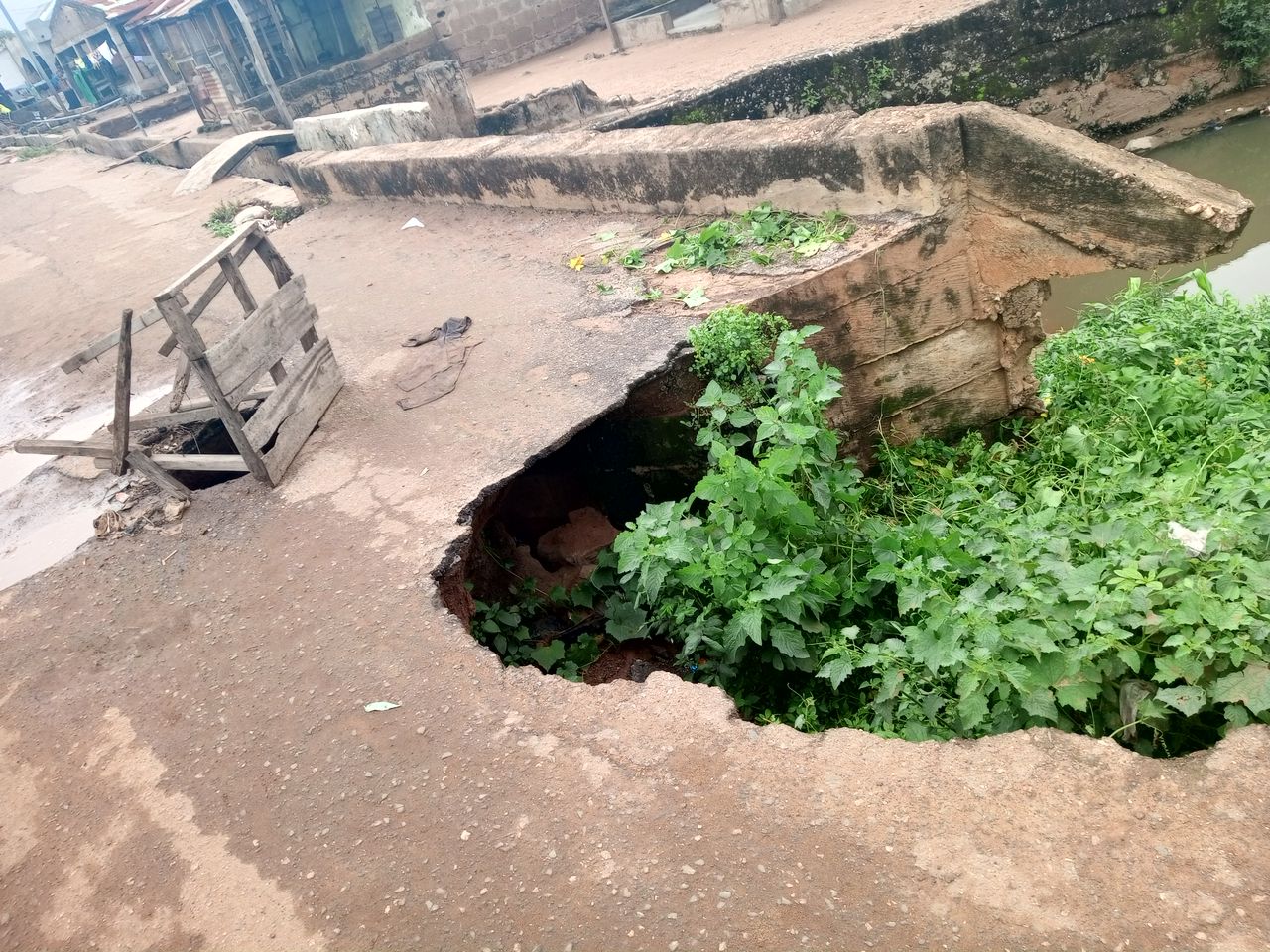
The experience is the same for Ramat Wasiu, a resident at Isale-Jagun/Kuntu community.
With mixed reactions, she recalled how flood washed away her properties including bed, cooking utensils and the food on fire.
“The water passses through our veranda. You can’t stay here whenever it rains. That day, I was cooking and it was raining heavily. Suddenly, the water entered our passage and washed away the food I was cooking. It also destroyed our properties,” she said.
For Wasiu, whenever it’s raining, it is the thought of the safety of her children that comes to her mind, and not that of food.
EROSION PAVED WAY FOR OPEN DEFECATION, DUMPING OF REFUSE
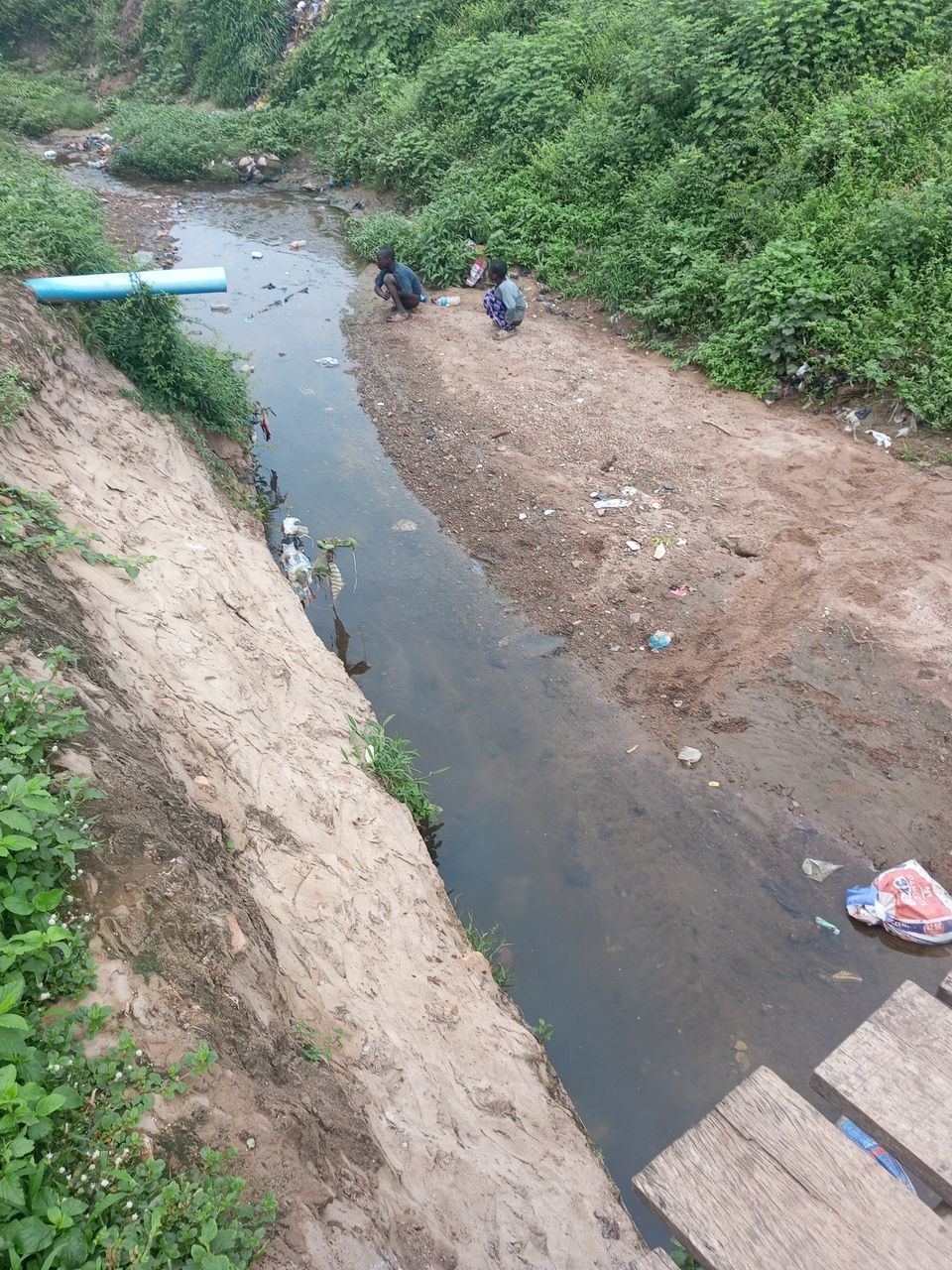
As a result of the erosion, open defecation and dumping of refuse are common in these communities.
Many Residents of Abata-Sakofi/Gaa Aremu/Kuntu and Abata-Suban/Ita-Kudimoh have blamed the erosion for contributing to open defecation in the area.
Ibrahim Saka, a resident of Ita-Kudimoh community, said people defecating in the open is not new in the community since erosion has paved the way for it.
“At first, we got tired of the odour. But now, we are used to it. You can also check inside the eroded area and you will see faeces dumped by people,” he said.
At Ishobatul Islamiy Institute of Arabic and Islamic Studies in Ita-kudimoh community, erosion has already taken down three blocks of building meant for toilet. The students now defecate openly.
According to UNICEF, Kwara is among the three states said to have the highest rates of open defecation in Nigeria.
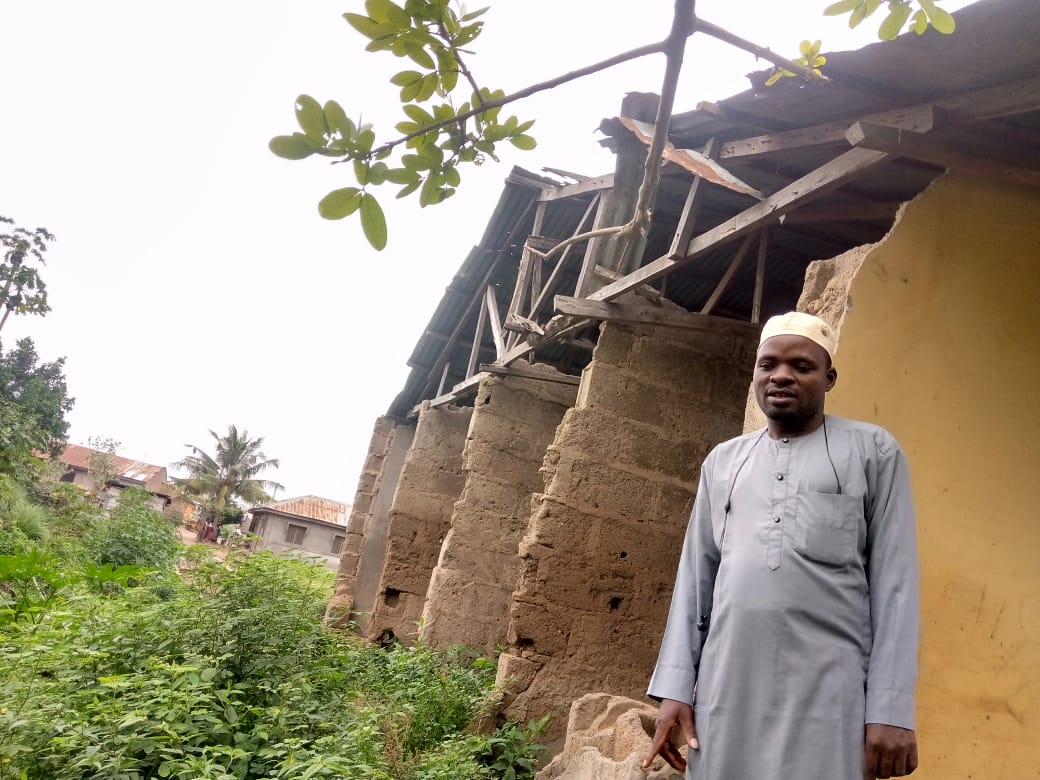
The erosion in these communities has also affected many schools, roads and other infrastructures.
The road linking Gaa Aremu, Isale-Jagun and Kuntu together is affected by flooding.
“Erosion is badly affecting this road. Parts of the road have been washed away,” Ibrahim Muiz, a resident, said. He added that residents fear a sudden collapse of the road.
The government-owned Shuban Junior and Senior Secondary school located at Ita-kudimoh community has lost a block of classrooms to erosion.
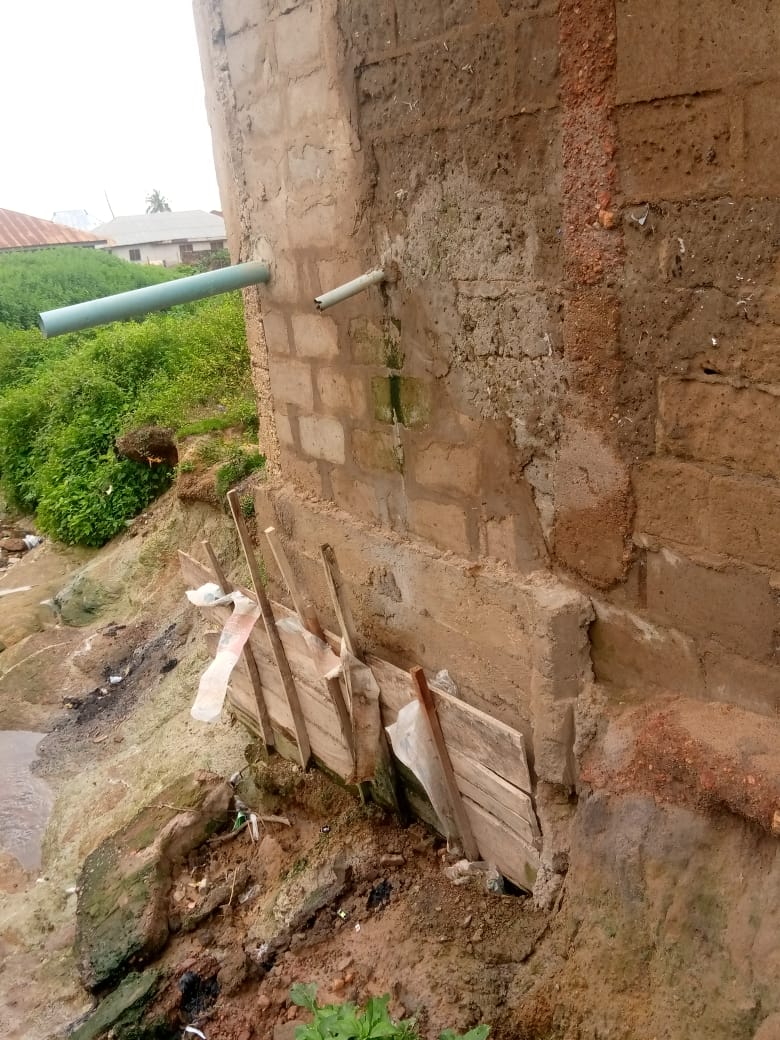
“You can see the traces of the board, it used to be a classroom,” Muiz said.
“You can see the walls of these other classrooms are already drenched; they are now deteriorating. If care is not taken, it will collapse soon. It was even the students that were asked to fill sacks of cement with sand and put them at the bottom of the building. That’s what is holding the building now.”
“WE WANT THIS EROSION CONTROLLED”
Tired of the situation, residents said they were not going to participate in the 2019 election until their needs were met.
However, they later changed their minds with the hope that the governor who was from their LGA would help solve the problem.
“We even mobilised people to vote for him with the intention that even if the government didn’t do anything for us, they should help us to control this erosion,” one of the community leaders said.
“But up till now, the reason why we voted has not been achieved.”
On three occasions, residents said government officials had come to inspect the situation in the area, but no work has yet commenced.
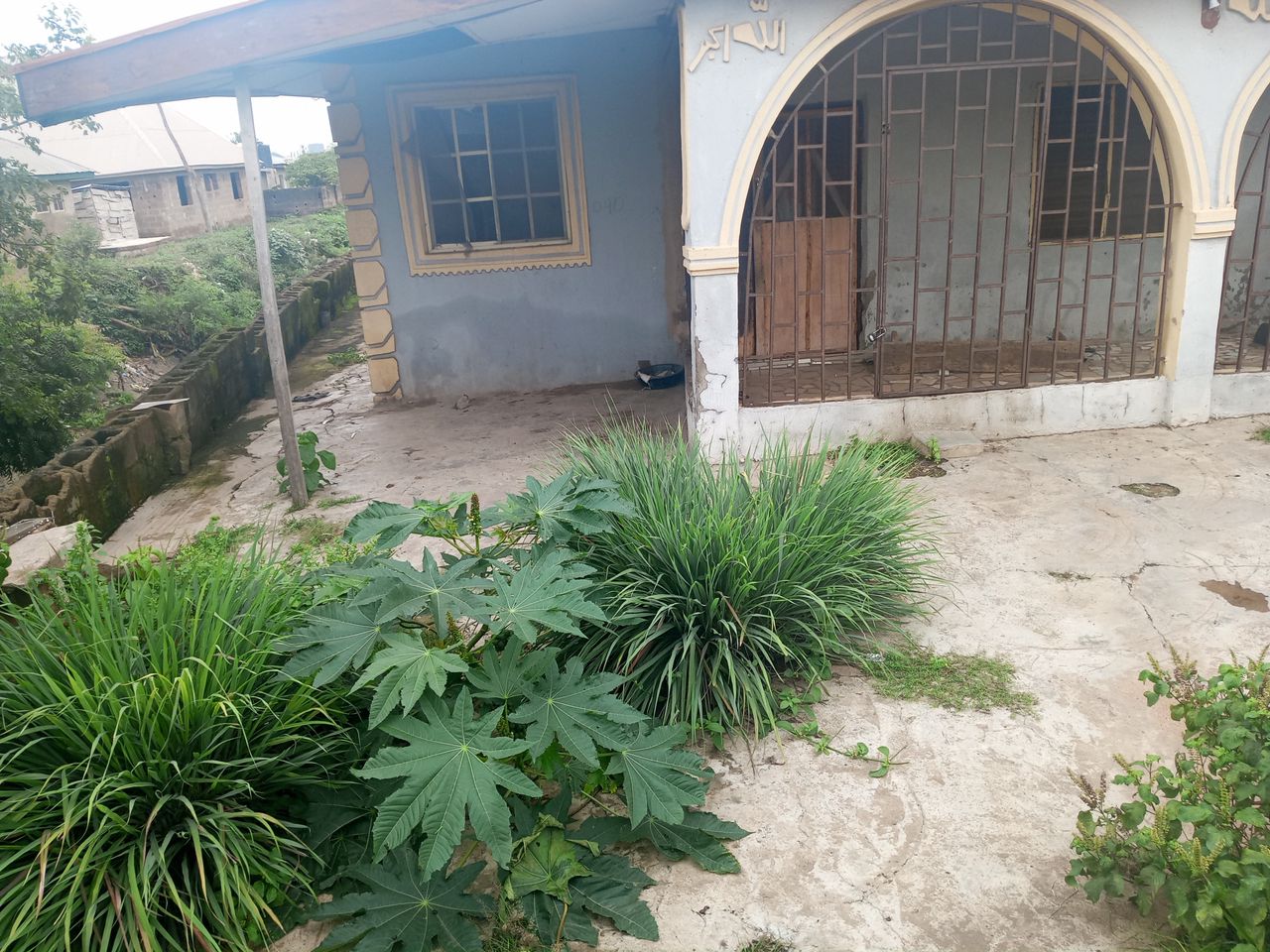
In 2018, concerned youths of Idi-Ope/Olojoku/Gaa-Aremu of Ilorin West LGA had called the attention of the state government, through social media posts and newspaper publications, to their plights.
A youth leader in the community also claimed that they’ve written to the state government on several occasions, although this reporter couldn’t independently verify this claim as no evidence was presented to back it up.
Yet, the government has not come to the aid of the community.
Although erosion and flooding are global phenomena, their impacts in Nigeria are heart-wrenching. In 2012, over 400 people died while 1.3 million others were displaced as a result of massive flooding. According to the National Emergency Management Agency (NEMA), this disaster cost the country $17 billion.
While in 2019, flooding affected a total of 277,555 people and 158 died due to that. The flooding in 2020 led to the death of 69 people, while 2,353,647 people were affected, according to the 2021 annual flood outlook by the Nigeria Hydrological Services Agency (NHSA).
On August 2, President Muhammadu Buhari said more than half a million of people in Nigeria are affected by flooding.
KWARA GOVERNMENT: WE ARE NOT AWARE
Remilekun Bamigbe, Kwara commissioner for environment and forestry, in a telephone interview with TheCable, said the ministry is unaware of the situation at Ita-kudimoh community. He said only a dump site was reported in the area.
“The only one I’m aware of is the illegal dump site at Ita-kudimoh community and that’s been worked on. But on the gully erosion in the area, we need to check when the letters were written,” she said.
“I know that of the Arabic school (Ishobatul Islamiy Institute of Arabic school). We made a visit to the area last year. We are seeking interventions now. We are working on how to rescue the situation and get the necessary approvals.”
Rafiu Ajakaye, chief press secretary to the governor, however said the erosion in Olojoku/Gaa-Aremu Abata Sakofi is already noticed and incorporated in a government scheme.
“The government is capturing the erosion issue in the Agro-Climatic Resilience in Semi-Arid Landscapes (ACReSAL), a World Bank initiative, which we are keying into as a government,” he said.
“The administration has not forgotten any of our people or community; things will ultimately go round. We appeal for patience and understanding while the government steadily attends to their needs and aspirations.”
EXPERTS SPEAK
Victor Imovbore, the acting national president of the Nigerian Environmental Society, said erosion has not been given adequate attention in Nigeria, particularly in terms of research and what to do with the data.
“Erosion might not end soon unless there is proper assessment and understanding of the problem by the government and then practised,” he said, adding that environmental issues are both natural and human-made.
He said erosion control and management is part of the ways the government can protect the lives and properties of the citizens.
Imovbore said the government must ensure that proceeding rules and guidelines are followed in terms of housing.
“Our government is not responsible. They failed to map the state to determine their vulnerability to erosion. Environmental issues need to be treated better in this country. They should be given more priority than before,” he said.
